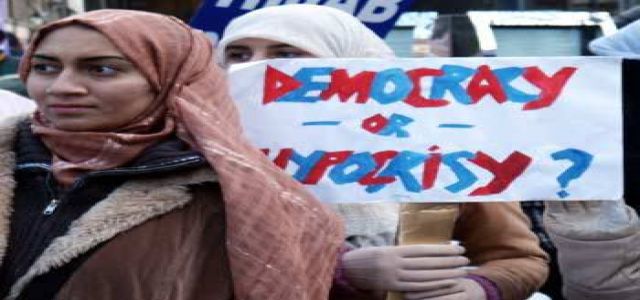|
|||||||||
| :: Issues > Activites | |||||||||

Strategies for Engaging Political Islam: A Middle East, U.S. and EU ’Trialogue’
The Project on Middle East Democracy (POMED) and the Friedrich-Ebert-Stiftung (FES) present
While much attention has been paid to whether Islamists are becoming more moderate, or whether they are committed to democracy, far less effort has been devoted to developing a practical strategy for engaging Islamists. There are many obstacles to such engagement, including Westerners’ disagreements with Islamists’ political agendas, authoritarian regimes’ tactics to exclude Islamists from the political process, and Islamists’ suspicion of American and European motives. As a result, A
|
|||||||||
| Tuesday, February 24,2009 16:04 | |||||||||
|
|||||||||
|
Engagement is important, however, because Islamists are a major political force in most Middle Eastern countries - a force about which U.S. and European policymakers are generally unfamiliar. How do Middle Easterners believe that the U.S. and the EU can play a positive role in dealing with Islamists? Where do Americans and Europeans see shared opportunities to engage Islamists, and what types of programs can take advantage of these opportunities? How would engagement affect Islamists" attitudes towards the U.S. and Europe, and towards political reform in the region? Please join us for a panel discussion with: Ruheil Gharaibeh Shadi Hamid Zoé Nautré Mona Yacoubian Moderated by Nathan Brown, Director of the Institute for Middle East Studies, George Washington University Thursday, February 26, 2009 The Henry L. Stimson Center |
|||||||||
|
Posted in Activites , Islamic Issues , Human Rights , Islamic Movements |
|||||||||
|
|||||||||
|
|
|||||||||
| Related Articles | |||||||||
|
|






